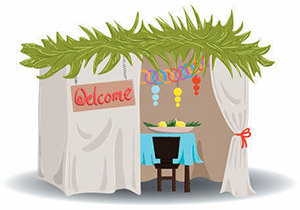
It happened. The nightmare we all fear. I was having cabinets installed in my home and something went wrong! When you invest so much time, effort and money in a project, you don’t want it to come out bad. Frantically, I called the cabinet installer. OK, I didn’t call him. I texted him, What’sApped his boss, and basically had a meltdown. “You’ve got to fix this!” I pleaded, with appropriately desperate emojis.
It was the end of the day and I was afraid they wouldn’t be able to do anything, throwing off our schedule. Worse, I feared there was no way to rectify the problem. I was on my way out to a meeting so I couldn’t wait for him to come but when I got back later that evening, Baruch Hashem, everything was straightened out!
I immediately texted the worker and thanked him for coming out and fixing the problem, doing such a great job, and basically saving my skin. I complimented him to his boss, too, and thanked him for his involvement. At some point though, once I calmed down, it hit me that this man had laid everything out, installed all the cabinets, attached hinges and doors, panels and drawers, and I didn’t comment on it.
It was only once I had a problem with a small (OK, maybe not so small) part, and he swooped in and came to my rescue, that I felt the appreciation for his craftsmanship that I should have felt all along. I should have been thanking him every step of the way for his care and attention to detail, but I didn’t because I just expected everything to go smoothly.
I’m sure by now you’ve guessed where I’m going with this. There’s one Craftsman who pays attention to every detail in every one of our lives. Forget a Jewish Carpenter, my Boss is above religion and has many more skills than that!
Hashem constantly works wonders and makes the whole world run for us and everyone else in it. Most of the time we don’t even notice it as we’re going about our business with Him working in the background. Then, all of a sudden, BAM!! Something happens that we weren’t expecting and sometimes we feel like there’s no way to fix the problem.
That’s when we make our frantic calls to Heaven, contort our faces and hearts into pitiful shapes, and try to convey to Hashem just how urgent this problem is. We know it’s out of our hands and He’s the only one who can help us. Sometimes it’s quick, sometimes it’s not, and sometimes we don’t even recognize the fix, but when we do, our hearts explode with joy and appreciation.
That’s when, like I did with my cabinets, we should stop to realize that not only the problem, but everything leading up to it that went smoothly, came from the same source. We should pause to reflect on what we’ve experienced without pain and suffering and how much work Hashem’s put in for us before we even asked.
It’s time to recognize that we’ve been blessed by having all the things we didn’t feel the need to daven about. It’s not that we took them for granted; it’s that we simply didn’t even stop to think about it. That’s why Sukkot is so special.
In Tammuz and Av we mourned the Bais HaMikdash and tried to enjoy some sort of summer vacation (for those of us in the Northern Hemisphere at least). Come Elul, we’re busy reflecting, improving, and trying to see what we can do differently.
Tishrei, with Rosh Hashanah and the Aseres Yemei Teshuva, means extended davening, early morning selichos, focusing on shofar blasts, and trying to put honey on everything that isn’t nailed down. Then comes Yom Kippur with its frantic pre-fast feast followed by 26 hours of trying to be angelic. The minute that’s over we’re running to build the sukkah and make sure we have a lulav and esrog.
Finally, Sukkot arrives and what is the Mitzvah of the day? Sit! Don’t do anything. Just sit in the Sukkah. What? No running around delivering Sukkot Manos baskets? Nope. What about measuring our food to make sure we’re eating at least four kilos of wheat in under four minutes? Nyet—not necessary.
Just sit there. Sit, and think.
Think about the fact that throughout the year, you’ve put in work, sure. You’ve offered prayers, of course. But now, we sit and think about all the things we didn’t have to think about, and that’s what makes us thankful.
The Ananei HaKavod, the Clouds of Glory that we commemorate by sitting in the Sukkah, controlled the climate, flattened out the paths we traveled, killed dangerous pests and more. Basically, they kept us rolling along smoothly, without bumps in the road. What we’re recalling is the fact that we were saved from having to think about all those things.
So, on Sukkot, it’s time to take stock of what we have; to look at all the cabinets, not just the problem ones. It’s finally a chance to not just give a quick “Thanks for everything,” but instead to give a well-considered, heartfelt “thank you,” for every thing.
Jonathan Gewirtz is an inspirational writer and speaker whose work has appeared in publications around the world. You can find him at www.facebook.com/RabbiGewirtz and follow him on Twitter @RabbiJGewirtz. He also operates JewishSpeechWriter.com, where you can order a custom-made speech for your next special occasion. Sign up for the Migdal Ohr, his weekly PDF Dvar Torah in English. E-mail [email protected] and put Subscribe in the subject.
By Rabbi Jonathan Gewirtz









